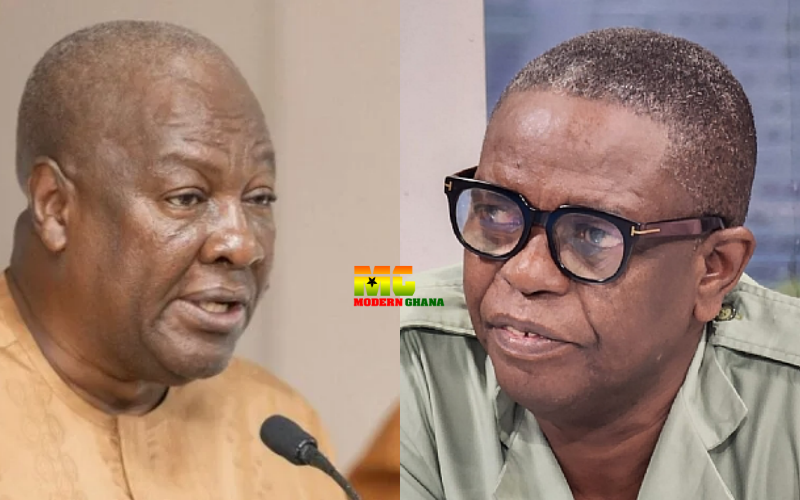Kwesi Pratt Jnr., the Managing Editor of The Insight Newspaper, has emphatically called upon President John Dramani Mahama to fulfill his campaign promise of limiting his government to a maximum of 60 ministers. Pratt emphasized the importance of holding politicians accountable for their commitments and asserted that adhering to this specific promise would earn President Mahama significant public commendation. He argued against any attempts to justify exceeding the promised number, even by a small margin, stating that the public expects strict adherence to the commitment of 60 ministers. Pratt’s stance reflects a growing demand for transparency and accountability in Ghanaian politics, where campaign promises often become subject to post-election revisions. His call for action underscores the need for politicians to prioritize the trust and expectations of the electorate.
Pratt’s insistence on holding President Mahama to his word reflects a broader concern regarding the escalating costs associated with maintaining a large government. A bloated ministerial cabinet implies increased expenditure on salaries, benefits, and logistical support, all of which place a strain on public resources. By advocating for a smaller, more efficient government, Pratt aligns himself with the voices advocating for fiscal prudence and responsible allocation of public funds. His position highlights the need for a government that prioritizes delivering essential services to the citizenry without unnecessary bureaucratic bloat and excessive spending. This emphasis on efficient governance resonates with the public’s desire for a leaner and more effective government apparatus.
Furthermore, Pratt’s argument extends beyond mere numbers and delves into the symbolic importance of keeping campaign promises. He argues that exceeding the promised 60 ministers, even by a single appointment, would signal a disregard for the public’s trust and a willingness to compromise on pre-election commitments. This erosion of trust can have far-reaching consequences, fostering cynicism and disillusionment among the electorate. By upholding his promise, President Mahama would not only demonstrate a commitment to fiscal responsibility but also reinforce the importance of integrity and accountability in political discourse. This, in turn, would strengthen the public’s faith in the political process and encourage greater engagement in democratic governance.
Pratt’s statement that he would even commend a smaller cabinet than the promised 60 underscores his conviction that a leaner government is inherently more desirable. This preference for fewer ministers reflects a belief that a smaller, more focused team can operate with greater efficiency and effectiveness. A reduced cabinet size potentially minimizes bureaucratic hurdles, streamlines decision-making processes, and fosters better communication and coordination among ministerial portfolios. This emphasis on efficiency resonates with the public’s desire for a government that can deliver services promptly and effectively, minimizing bureaucratic red tape and maximizing the impact of public spending.
The context of President Mahama’s appointments, with 42 ministers already selected and deputies yet to be named, adds further weight to Pratt’s call for adherence to the 60-minister limit. The impending appointment of deputies raises concerns that the final number of ministerial positions could significantly exceed the promised 60, potentially triggering the very criticism Pratt preemptively voiced. His proactive intervention underscores the urgency of addressing this issue before the final cabinet composition is solidified. By publicly reiterating the importance of the 60-minister pledge, Pratt aims to influence the President’s decision-making process and ensure that the final cabinet size reflects the pre-election commitment.
In conclusion, Kwesi Pratt Jnr.’s call for President Mahama to honor his promise of a 60-minister cabinet reflects a larger call for accountability, fiscal responsibility, and adherence to campaign promises. His emphasis on the symbolic importance of keeping this commitment highlights the need for politicians to prioritize the public’s trust and demonstrate integrity in their actions. By advocating for a leaner, more efficient government, Pratt aligns himself with the public’s desire for responsible governance and effective service delivery. The context of ongoing ministerial appointments adds urgency to his call, underscoring the need for decisive action to ensure that the final cabinet size reflects the President’s pre-election commitment and reinforces public trust in the political process.














